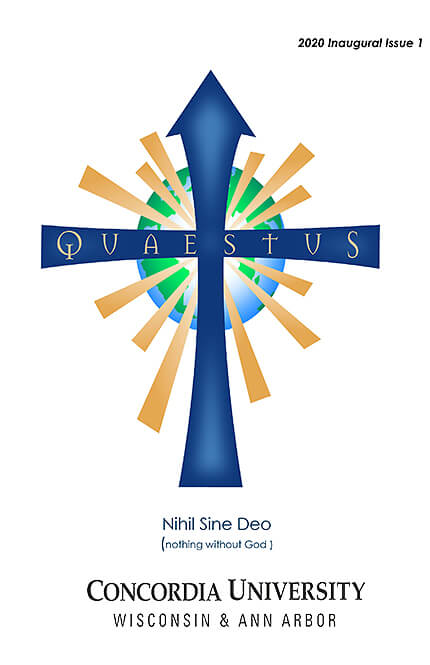Quaestus is a student-led journal from Concordia University Wisconsin's Batterman School of Business and Concordia University Ann Arbor's Haab School of Business presenting ideas about Liberty, Virtue and Economics, from a Christian perspective, to promote human flourishing. Our vision is to inspire the next generation of Christian thought leaders by addressing global issues with sound economic and moral principles.
Because it will be most conducive to clear communication, I’m going to take this opportunity to be somewhat informal. Quaestus (Kway-stus) is basically a group for students who want to get people to talk about important topics. Together, we form an editorial board of between five and seven undergraduate or graduate students, led by Dr. Scott Niederjohn with Dr. Daniel Sem as an advisor. We run two writing contests, one in the fall and one in the spring. Student editors are either chosen from the winners of these contests or invited by the current editorial board after demonstrating writing ability.
Quaestus serves two main functions. First: we publish two periodicals a year, one in the fall and one in the spring. The fall periodical involves transcriptions from speakers at CUW’s annual Liberty, Faith, and Economics summit. The spring periodical includes articles by students, faculty, and Quaestus editors. Any CUW student or faculty member can publish articles through Quaestus, although they must be accepted and peer-reviewed by the editorial board. The idea is that people can read the fall periodical for inspiration, then write articles for the spring periodical based on the themes of the fall periodical. Themes generally relate to free speech, economics, healthcare, and politics.
Second: we develop and lead forums to promote conversations on contentious topics. Our general model is to select one or more experts to speak on an issue. If we can, we will invite speakers with opposing perspectives. Our speakers will present publicly on the topic, demonstrating to the student audience that a healthy and productive conversation on this topic is possible. Students always get a chance to question our speakers at the end of the forum. In the past we have led forums on racial relations, Roe v. Wade, educational issues, and the like. This spring our topics will be climate change, gender and feminism, and religious freedom. Expect one forum each month of February, March, and April.
For the members of the editorial board, Quaestus serves as an excellent opportunity to practice writing, editing, and publication. We experience the peer-review process, develop strategies for marketing our publications, and learn to sharpen our thoughts. There are also opportunities to interact with leading experts in various fields, as well as chances to attend and present at conferences.
The following periodical includes transcriptions from the fall Liberty, Faith, and Economics (LFE) Summit at Concordia Wisconsin. This event is run by the Concordia Free Enterprise Center in association with the Action Institute, an American think tank focusing on religion and liberty. The summit is held annually and has drawn numerous high-profile speakers including this year’s keynote, Yeonmi Park. The focus of this year’s LFE summit was freedom under pressure. A second periodical will be published in the spring including student and faculty articles related to this topic.
Ultimately, our goal as an institution is to practice fruitful conversations and careful thought. Quaestus, which means profit in Latin, has a special emphasis on things that are profitable for us to be thinking about and discussing. As you read the following transcriptions, we hope you will be inspired by them into further questioning of our world, conversations about truth, and perhaps even to step into publication yourself.
Isaiah Mudge
Senior Editor
Due Jan. 5th, 2026 at 11:59pm
LFE Topic Questions:
- What is a Christian’s response to immigration given the verse Hebrews 13:2?
- Based on the ideas expressed in Locke's Venditio, how should a moral government react in times of economic turmoil?
- Also consider navigating minimum wage (Colossians 4:1)
- How can religious convictions serve as a legitimate basis for public policy?
- When does general public safety surveillance encroach on the bounds of personal liberty?
- How do we balance a theological approach to Israel while also balancing an American first approach? Can a Christian be pro-Palestine?
- How do we prioritize entrepreneurship in a regulation driven economy?
- If tariffs are meant to promote national interests, how should those interests be defined in a globalized world? How do you balance economic prosperity with national security issues?
- Interest could be considered broadly: national security, moral interest, environmental issues
- What future effects of today’s tariffs have for future conservative trade advocacy?
Prizes
- 1st - $750
- 2nd - $500
- 3rd - $250
Free Response Question:
Relate your area of study or interest to the broad topics presented at the LFE event. Is there an area or field that interests you which relates to the LFE content? The point of this prompt is to encourage you to think outside the box and recognize how seemingly unrelated areas are all connected in our lives.
Prize
- 1st - $750
Requirements
- CUW Student
- Chicago Style Citations
- Word count suggestion: 1,500 - 3,000
- 3+ sources (scholarly journal or academic book)
- Cited throughout essay in in a bibliography
- Essays without any sources will not be considered for winning a prize
- Contact James Schultz or Michelle Gain for any source questions
*There are recordings of the LFE summit on the Free Enterprise Center site, so it is okay if you missed some of the speakers!
**Essays should reference the content of the LFE presentations, but do not need to directly quote or cite the speakers in the essay.
***All selected prize winners are required to meet in person with Dr. Niederjohn, Dr. Montreal, and/or the Quaestus Editorial Staff in order to be eligible for the prize.
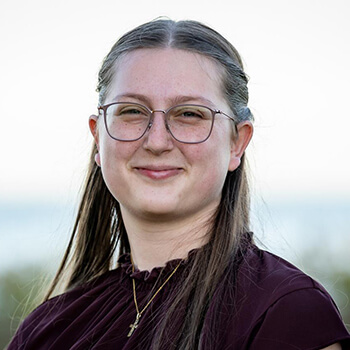
Co-Editor in Chief
Michelle Gain, Class of 2026, Communications Sciences and Disorders
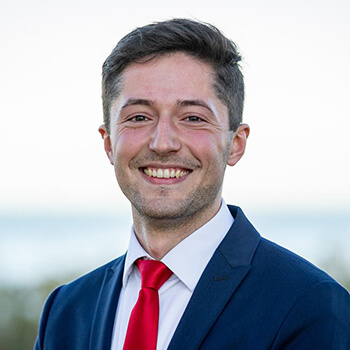
Co-Editor in Chief
James Schultz, Class of 2026, Lutheran Secondary Education Social Studies and History
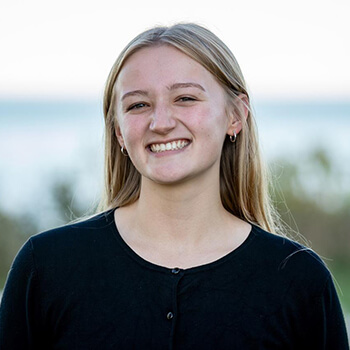
Senior Editor
Katharina Bode, Class of 2027, Lutheran Secondary English Education and English (Literature)
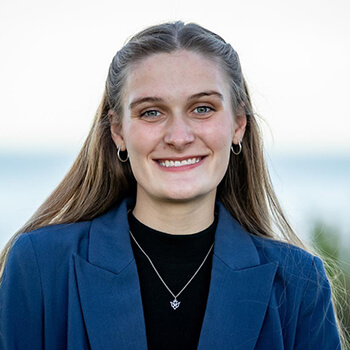
Senior Editor
Danika Burkett, Class of 2027, Political Science and History
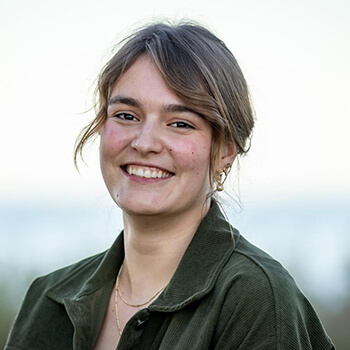
Senior Editor
Magdalene Lane, Class of 2026, Christian Thought
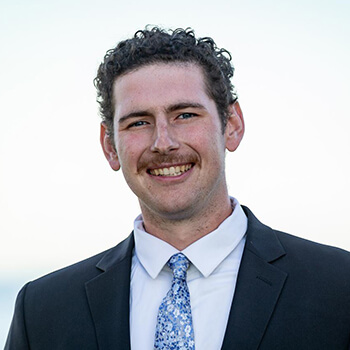
Senior Editor
Tyler Murray, Class of 2026, Political Science and Accounting
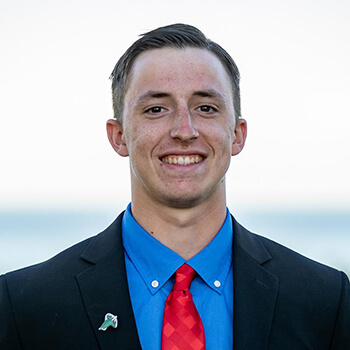
Senior Editor
Luke Witte, Class of 2027, Computer Science - A.I. And Robotics and Philosophy
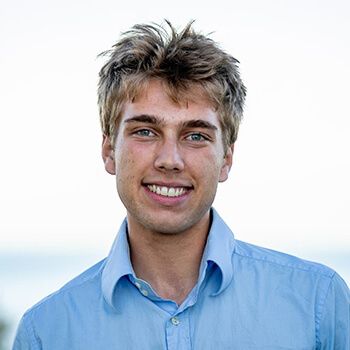
Business and Marketing Editor
Athan Shaltanis, Class of 2027, Finance with a minor in Economics
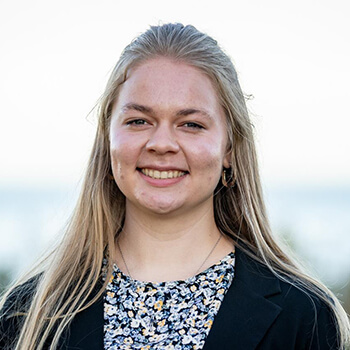
External Affairs Editor
Mikiah Poock, Class of 2027, Finance with a concentration in Economics
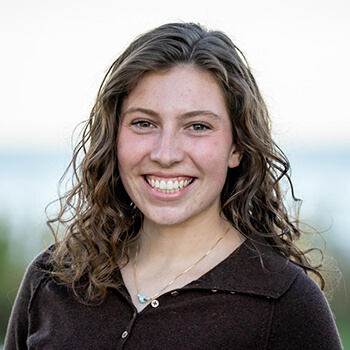
Publication Editor
Ellen Egger, Class of 2028, Graphic Design and Philosophy
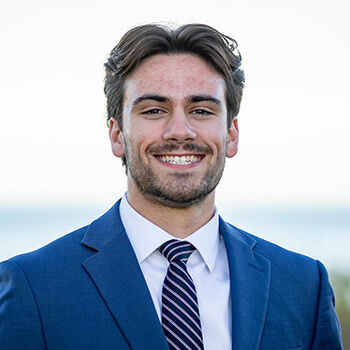
Research Editor
Jonathon Weir, Class of 2027, Finance
Crumbling Under Election Pressure
Date: November 4, 2024
Not sure what the candidates believe? This forum encapsulated all the hot button election issues: rising crime rates, the economy, healthcare, abort, transgenderism, foreign policy, 2nd Amendment, and immigration!
Legalize Marijuana
Date: March 19, 2024
A civil discourse and panel discussion surrounding cannabis, legalization, and adverse health effects
Delete TikTok Now
Date: February 15, 2024
As Congress considered a bill to force TikTok out of the United States, Quaestus brought a panel of national and local speakers together to discuss data privacy and the consequences of mass data collection by foreign governments. Jake Denton, a Tech Policy researcher at The Heritage Foundation, provided a national and legal overview of the situation. Concordia's own Professor John Fields then discussed the consequences of mass data on individual privacy. Questions from the audience allowed students to explore their own concerns and interests as these broad issues affect their lives
The Israeli-Palestinian Conflict
Date: November 14th, 2023
With the outbreak of war in the Middle East, Quaestus invited an inter-disciplinary panel of speakers to discuss the context and nuances of the Israel-Palestine conflict. Dr. Patrick Steele, Professor of History at CUW, detailed the broad history of the conflict and major turning points in Israel-Palestine relations in the last century. For a theological perspective, Rev. Kevin Parviz discussed the LCMS views on Israel and Zionism as well as the Christian response to war. The modern political circumstances of the Israel-Palestine conflict were described by Dr. Lamont Colucci, Political Science Professor and Director of the CUW National Security and Space Center. Together, the historical, theological, and political perspectives provided a framework for understanding and reacting to the Israel-Palestine conflict
Three Perspectives on Climate Change
Date: February 6th, 2023
In order to push past the surface level limitations of the common debate surrounding climate change, Quaestus invited a panel of thinkers across disciplines to discuss the various perspectives which surround our response to environmental catastrophe and growing concern about the future of our planet. Dr. Angus Menuge, Mr. Steve Einhorn, and Dr. Joseph Jacobsen, representing the fields of Philosophy, Business, and Environmental Science respectively, shared their take on the matter and dialogued in response to one another and questions from student listeners in an insightful exploration of our ideal response to the climate change question.
The Value of Higher Education: Kevin Sheridan, Scott Niederjohn, William Cario, Dr. Gonzalez-De Jesus
Date: November 8th, 2022
Students wondering about the worth of their tuition dollars in light of recent conversations about “student loan forgiveness,” “falling enrollment numbers,” and the like came to hear a panel of informed economists and university administrators discuss the value of higher education from their respective backgrounds. Dr. Scott Niederjohn is a Professor of Economics and the head of the Concordia Free Enterprise Center here at CUW and Mr. Kevin Sheridan is the director of Financial Aid at CUW. Together, they tackled the economical angle of this conversation by bringing together statistical details and important insights from trends in the field. On the other hand, Dr. William Cario, then Interim President of CUW, and Dr. Naydeen Gonzalez-De Jesus, Executive Vice President of Student Success, gave a great reminder of the intrinsic, lasting value that higher education has for the mind and the soul of the young American citizen today
The Hong Konger Viewing Party
Date: October 25th, 2022
CUW students came together to watch Acton Institute’s new film The Hong Konger, which describes the harrowing journey of Jimmy Lai, a young, scrappy businessman from Hong Kong who roused a wave of revolution unlike any other seen in this generation as China grew increasingly hostile to the freedoms of his fellow citizens. To find out more about this modern-day hero, follow this link.
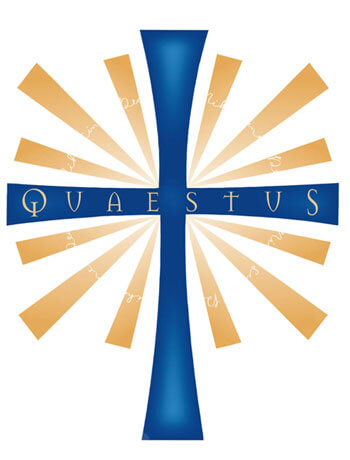
Spring 2024 Issue 6 NO. II

Fall 2024 Issue 6 NO. I

Spring 2024 Issue 5 NO. III

Spring 2024 Issue 5 NO. II

Fall 2023 Issue 5 NO. I

Spring 2023 Issue 4 NO. II
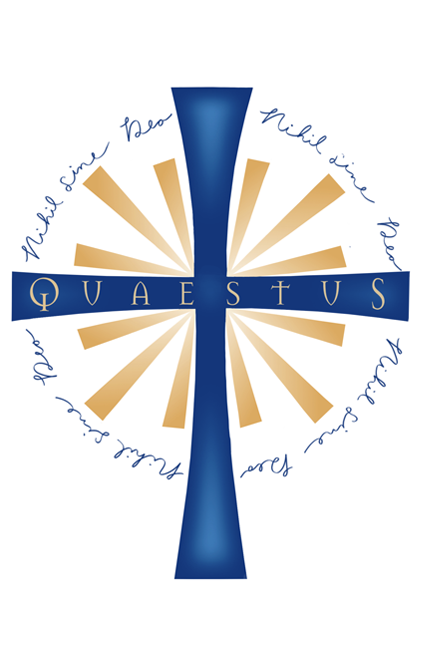
Fall 2022 Issue 4 NO. I


